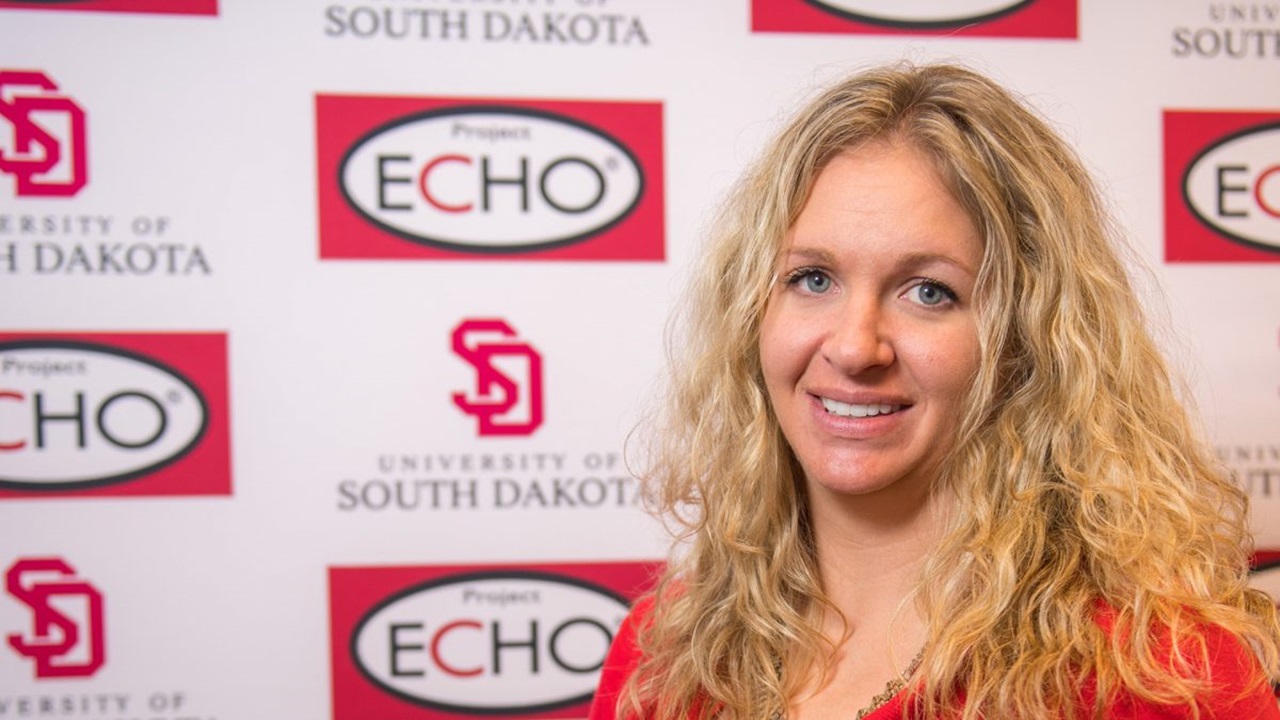USD Health Experts Share Knowledge with Rural Providers in South Dakota

Telehealth—health care delivery via videoconferencing, texting and mobile apps--allows health care systems and providers to deliver vital services to patients to maintain contact in providing coaching and support, education, training, therapies and monitoring. With the power to mitigate the influx of patients and to ease the burden on health care systems, telehealth is projected to maintain a high level of use long after the coronavirus pandemic has dissipated.
The University of South Dakota and its myriad outreach areas have aptly responded to the care needs of South Dakotans—particularly, rural South Dakotans--in innovative ways. Here, we present a series of stories showcasing the wide-ranging ways USD, true to the interdisciplinary nature of a liberal arts education, has answered society’s call for transformation.
Health experts in USD’s School of Health Sciences not only teach students, conduct research and serve patients and clients in clinics and health care facilities, they also share their knowledge and experience with health providers and others throughout South Dakota using an innovative, online information-sharing platform known as Project ECHO.
ECHO-an acronym for Extension for Community Healthcare Outcomes-was established to connect health experts at the university with front-line caregivers and others in rural and underserved settings. USD serves as a “hub” for the statewide system, providing experts, programming and coordination. The so-called “spokes” of that hub are health clinics, universities/colleges, the Veterans Administration, hospitals, judicial institutions, non-profits and other facilities in towns across the state that receive tele-mentoring programs as part of this new learning opportunity.
The project has been immensely popular since it was launched in 2019, with special and necessary applications during the pandemic. Thus far, six different topics have been the subject of ECHO programs, totaling more than 50 different sessions serving attendees in 21 different South Dakota locations, including Gregory, Faulkton, Lemmon, Lower Brule, Salem, Sisseton, Rosebud, Chamberlain, Eagle Butte and Parkston. Approximately 345 individuals from a wide variety of health professions attended one or more of these programs. An upcoming series of programs will serve dentists and dental hygienists across South Dakota with information about health screenings that can reveal substance addictions, wellness and adverse childhood events, and how those conditions relate to social determinants such as where people live, work, learn and play.
“Our staff, faculty and partners are creating invaluable content to share with our state’s health care professionals and others who can benefit from ECHO’s information-sharing capabilities,” said Haifa Samra, Ph.D., dean of the USD School of Health Sciences. “ECHO allows for those of us in the health professions to share and exchange experiences and best practice ideas to address current challenges and improve patient outcomes.”
Shelby Jepperson, MPH, ECHO’s project coordinator at USD, says the ECHO schedule has been busy and productive. “Using ECHO, the Department of Addiction Counseling and Prevention provided a series of programs to help train counselors about chronic pain management, telehealth and stimulant use,” she said. “ECHO has also provided programs to health professionals about palliative care, early hearing detection and trauma care.”
Jepperson is particularly pleased at the number of meaningful partnerships the ECHO program has established for the School of Health Sciences across the state, including state agencies, health institutions, associations, organizations and businesses. “During the pandemic,” Jepperson noted, “we partnered with the university’s Sanford School of Medicine to deliver an eight-week series highlighting timely information about COVID-19. We had great turnout, with 132 individuals attending one or more of the COVID-19 series.”
Six completed ECHO programs to date:
- Interprofessional discussion sessions
- Stimulant use in South Dakota
- Maximizing Rural Telehealth in South Dakota
- COVID-19 in South Dakota
- Opioid Use and Chronic Pain Management
- Early Hearing Detection
